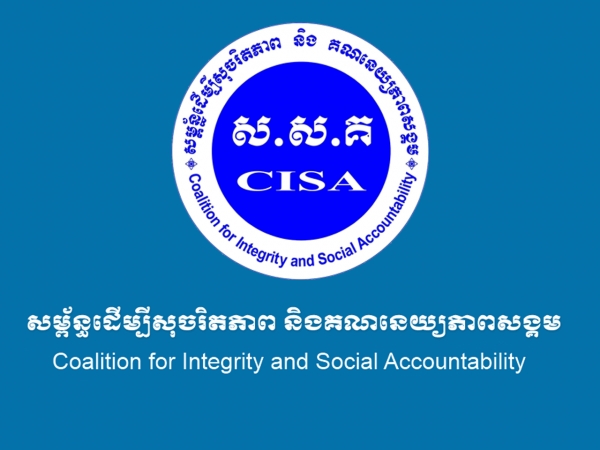The ERA, which comprises members of rights, legal and democratic advocacy groups and has been closely involved in efforts to develop and advocate reform of the election process since last year’s disputed election, issued an open letter to both parties on Thursday outlining recommendations on the new election commission and amendments to the Constitution and election law.
“I want to emphasize that in an election, there should be no secrecy, except when casting a vote,” said Preap Kol, executive director of Transparency International Cambodia, in a press conference Thursday.
“What the political parties are discussing, people want to hear and observe. What are you saying? It would be much better if this mixed commission was open for public opinion. Everyone has a stake in it.”
Mr. Kol said that the parties’ agreement, struck on July 22, “contains fundamental aspects, but it’s very vague.”
“We think the part on the composition of the NEC fell out of our wishes—we wanted independent members and for the recruitment process to be followed as stated in the agreement,” he said.
“Instead, there are four members from each party and a ninth neutral member.”
Last week, the CPP and CNRP announced that they had agreed to nominate Pung Chhiv Kek, the president of rights group Licadho, to be the ninth and neutral member of the new election body.
ERA representatives said Thursday that carrying out the voter registration process this year would be “a waste of money” if the parties ultimately overhaul the process completely.
CNRP spokesman Yem Ponhearith said Thursday that his party would prefer that the ongoing talks be open to the public, but that the CPP wants to keep them private.
“In fact, the CNRP always upholds its stance that we want reporters and observers to go in and listen to the talks, but our partners did not agree with us,” he said.
“We always consult with civil society, but these discussions are to find solutions. Therefore, we do not allow civil society to report or participate,” he added.
CPP lawmaker Cheam Yeap said observers, if allowed into the working group meetings, may exaggerate and interrupt what is being said.
“If you want to interrupt [a meeting], it is impossible,” Mr. Yeap said. “After the meetings, we will hold a press conference and report to each top leader and will disseminate the result.” Form: The Cambodia Daily



